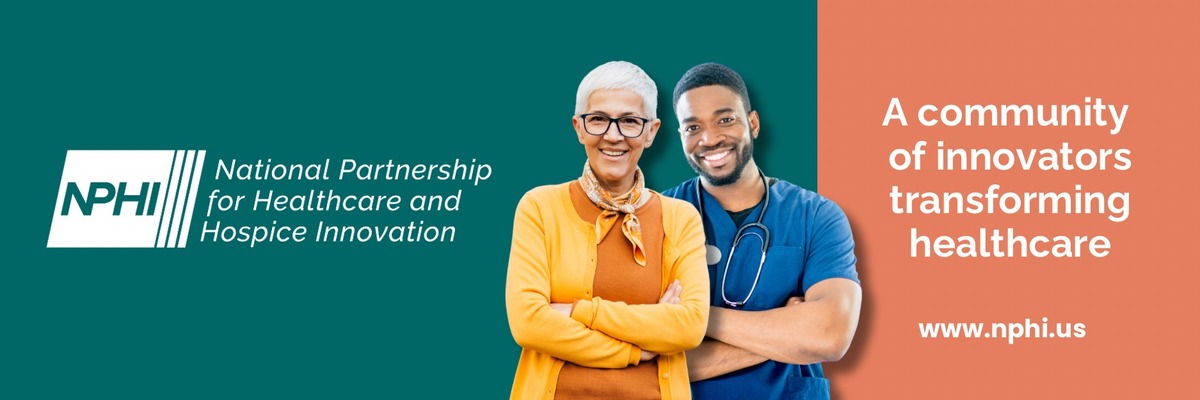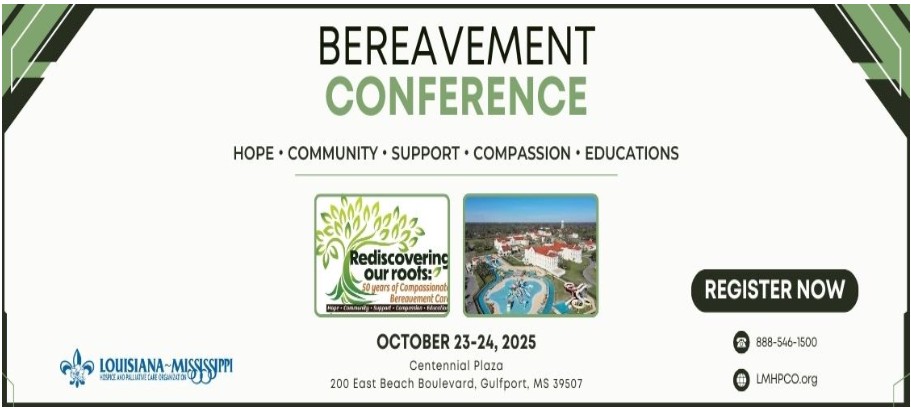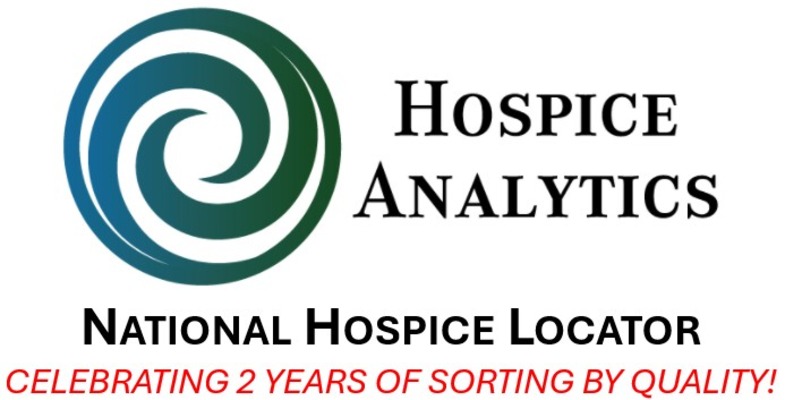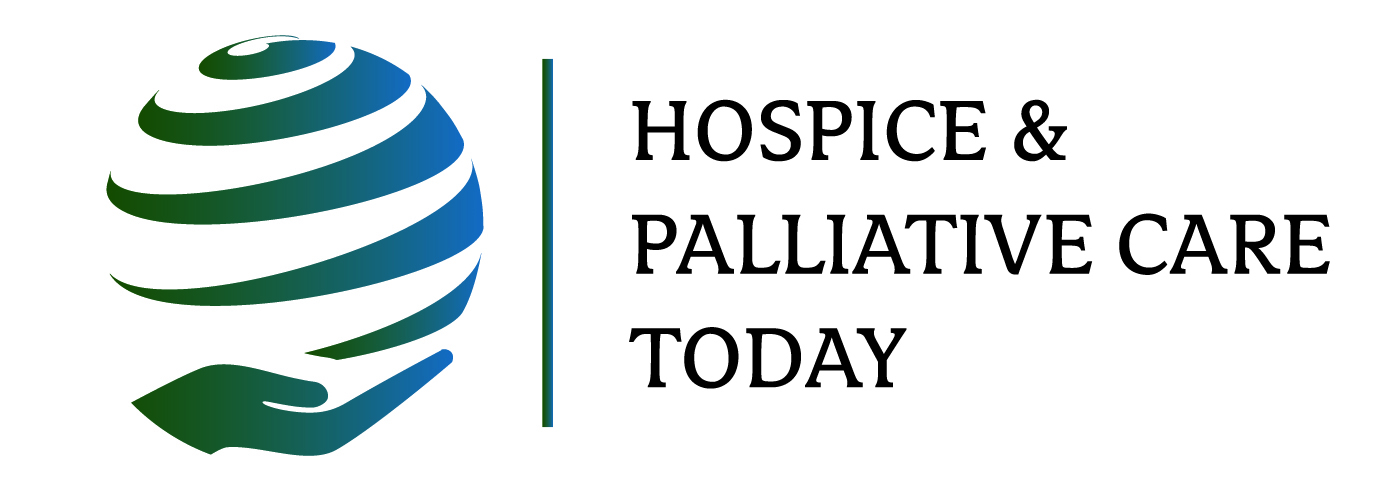Sign up for our free daily newsletters here! Note: subscribers can access our search feature!
Welcome to Hospice & Palliative Care Today, a daily email summarizing numerous topics essential for understanding the current landscape of serious illness and end-of-life care. Teleios Collaborative Network podcasts review Hospice & Palliative Care Today monthly content - click here for these and all TCN Talks podcasts.
2. America's Health Rankings: 2024 Annual Report, State Summaries
4. Opportunities and barriers to artificial intelligence adoption in palliative/hospice care for underrepresented groups: A technology acceptance model-based review
5. 2 key trends shaping the hospice workforce in 2025
6. How hospices can avoid pitfalls in AI implementation
8. What happens when someone passes at home? It depends
9. Nurse honor guard hoping to grow in South Dakota
13. How unexpected empathy for the incarcerated inspired the Bonnie Raitt ballad she found difficult to sing
National Volunteer Week - April 20-26, 2025
National Today; retrieved from the internet 4/7/25
National Volunteer Week is celebrated annually during the third week of April and this year it will be observed from April 20 to 26. This week-long celebration is about placing a spotlight on inspiring figures whose invaluable seeds of kindness through volunteering are bettering the community and our world in general. This significant celebration which was established in 1974 provides the perfect opportunity to say thank you. It also challenges us to do better and look for ways to be active participants, joining hands to impact our local communities and calling for more support. [Continue reading ...]
Editor's note: Visible, vocal, meaningful appreciation to hospice and palliative volunteers is crucial. Calling all hospice executive leaders, you need to know this CMS standard and support your Volunteer Department accordingly:
§ 418.78 Condition of Participation: Volunteers
- Volunteers must provide day-to-day administrative and/or direct patient care services in an amount that, at a minimum, equals 5 percent of the total patient care hours of all paid hospice employees and contract staff, including contract staff.
- The volunteer activities must be related to the administrative and direct patient care functions. No fundraising or board
- member volunteer activities can count toward the 5 percent volunteer hours requirement.
- These volunteers must be used in defined roles and under the supervision of a designated hospice employee.
America's Health Rankings: 2024 Annual Report, State Summaries
HHS.gov - 2024 State Summaries; data from the U.S. Government Human Health Services; retrieved from the internet 4/4/25
[Examine current data for each U.S. state, and apply relevant information to the services you provide:]
- Overall Rank
- Social & Economic Factors ...
- Community and Family Safety ...
- Economic Resources ...
- Education ...
- Social Support and Engagement ...
- Physical Environment ...
- Air and Water Quality ...
- Climiate and Health ...
- Housing and Transit ...
- Clinical Care ...
- Access to Care ...
- Preventive Clinical Services ...
- Quality of Care ...
- Behaviors ...
- Nutrition and Physical Activity ...
- Sexual Health ...
- Smotking and Tobacco Use ...
- Health Outcomes ...
- Behavioral Health ...
- Mortality ...
- Physical Health ...
- Overall ...
 |
The evolution of work: How Gen Z is reshaping leadership and workplace culture
Forbes; by First Place For Youth - Jayme Catalano; 4/2/25
As Generation Z enters the workforce in growing numbers, they are bringing fresh perspectives and expectations that are reshaping the traditional workplace. This digital-native generation, born between 1997 and 2012, is driving significant changes in management styles, work environments, and organizational values. Their influence is prompting companies to adapt, evolve and innovate, creating a new paradigm for the future of work.
- Purpose-Driven Work ...
- Work-Life Balance and Flexibility ...
- Technology Integration and Artificial Intelligence ...
- Trauma-Informed Care and Mental Health Awareness ...
- Leadership and Management Styles ...
- Diversity, Equity and Inclusion ...
- The Pandemic’s Lasting Impact ...
Opportunities and barriers to artificial intelligence adoption in palliative/hospice care for underrepresented groups: A technology acceptance model-based review
Journal of Hospice & Palliative Nursing; by Tuzhen Xu and Gloria M Rose; 4/2/25
Underrepresented groups (URGs) in the United States, including African Americans, Latino/Hispanic Americans, Asian Pacific Islanders, and Native Americans, face significant barriers to accessing hospice and palliative care. ... Findings suggest that AI has the potential to improve decision-making, enhance timely palliative care referrals, and bridge language and cultural gaps. Artificial intelligence tools were found to improve predictive accuracy, support serious illness communication, and assist in addressing language barriers, thus promoting equitable care for URGs. However, barriers such as limited generalizability, biases in data, and challenges in infrastructure were noted, hindering the full adoption of AI in hospice settings. Artificial intelligence has transformative potential to improve hospice care for URGs by enhancing cultural sensitivity, improving communication, and enabling more timely interventions. However, to fully realize its potential, AI solutions must address data biases, infrastructure limitations, and cultural nuances. Future research should prioritize developing culturally competent AI tools that are transparent, explainable, and scalable to ensure equitable access to hospice and palliative care services for all populations. [Continue reading ...]
 |
2 key trends shaping the hospice workforce in 2025
Hospice News; by Holly Vossel; 4/4/25
Hospice providers have unveiled two key themes that are impacting the ability to sustain and grow their workforce. Staffing shortages have long topped the concerns of hospice executives nationwide. Rising demand for hospice care has been outpacing the supply of clinical resources for several years running. Labor strains have also mounted among nonclinical and back-office administrative, billing and IT roles. ...
- Trend #1 New generations, educational opportunities ...
- Trend #2 Rising costs compounding shortages ...
- [Continue reading ...]
How hospices can avoid pitfalls in AI implementation
Hospice News; by Jim Parker; 4/4/25
Hospice providers, along with the rest of health care, are increasingly relying on technology for clinical and business operations, with artificial intelligence among the most common investments. However, careful implementation is necessary to effectively use these systems. ... One of hospices’ key goals with AI is to increase efficiency. This lean toward efficiency reflects larger trends in the industry as the labor pool dwindles. Without more boots to put on the ground, providers are seeking ways to get more productivity from the ones they already have in place. [Continue reading ...]
 |
Build sustainable schedules to support physician well-being
American Medical Association (AMA) - Physician Health; by Sara Berg, MS; 4/1/25
Physician schedules often fail to block off the time required to complete nonpatient-facing tasks such as clinical documentation, patient messages and chart review. If this hidden time were accounted for, doctors could show that they have vastly reduced patient availability, given the amount of time that is required to complete these nonclinical tasks. ”Rather than reduce patients’ access to a doctor by blocking their schedules, it makes much more sense to delegate various tasks,” said R. John Sawyer, PhD, a neuropsychologist at Ochsner Health. [Continue reading ...]
What happens when someone passes at home? It depends
Bozeman Daily Chronicle, Bozeman, MT; Chris Remely "discussions with a funeral director"; 4/5/25
One of the most common questions we get asked as funeral directors is, “What happens if I pass away at home?” The answer is ... it depends. Home death is fairly common in the context of someone being on hospice care. For many individuals who have been given a difficult medical diagnosis that is terminal, they often prefer to be at home surrounded by loved ones for as long as possible. ... In this scenario, hospice will pronounce the death and work with the funeral home to transfer the individual into their care. ... However, when someone passes away at home and they are not on hospice, this is considered an “unattended death” — meaning a medical professional is not involved. In this case, the coroner’s office is required to investigate the death to determine the cause and manner of death — as well as pronounce the death. ... When someone from the coroner’s office arrives, they will do several things. They will visit with the next of kin and ask them questions about their loved one’s medical history and investigate the scene where the death occurred.
Editor's note: Too often, hospices gloss over this all-important information for caregivers and families. Death is traumatic enough. Families are left in a lurch. Conflicts can erupt at the family's most vulnerable moments. Yes, timing and delivery for such sensitive information is important. Our sponsor Composing Life Out of Loss provides empathic, sensitive videos for hospice teams to use with caregivers and families, with interdisciplinary team guides for tending individuals' different readiness for conversations and preparation.
 |
Nurse honor guard hoping to grow in South Dakota
Sisseton Courier, Sisston, SD; by Brenner Cariveau; 4/4/25
Nurse Honor Guard is a national organization which aims to honor the life of a nurse in funeral services. Traveling home, health and hospice nurse Laura Frankenhoff said the ceremonies help highlight the career of the nurses and is a way to ensure they are recognized for the work they have done as a nurse. Nurse Honor Guard has been performing ceremonies to honor the lives of nurses nationwide since their inception in the 1980s, Frankenhoff said. Regarding the honor guard, the base is made up of volunteers, according to Frankenhoff. "It's a volunteer chapter. You can make a chapter anywhere."
Editor's note: Do you honor those who laid the foundations for the work you're able to do now? If not, how can you? May we remember. May we humbly thank and honor these persons to whom we owe so much.
Trump administration continues to defend nursing home staffing mandate in court
McKnights Long-Term Care News; by Kimberly Marselas; 4/7/25
The federal government continues to defend a national nursing home staffing mandate in court, despite several members of the new presidential administration having expressed major concerns about the rule finalized in 2024. Department of Justice attorneys on Thursday again outlined their justification for the rule, telling the Eighth Circuit Court of Appeals that the Centers for Medicare & Medicaid Services did not exceed its legal authority in dictating 24-hour registered nurse coverage and 3.48 hours a day of direct patient care from every US skilled nursing facility. [Continue reading ...]
 |
Strong social connections improve older adults’ well-being regardless of setting, study finds
McKnights Long-Term Care News; by Donna Shryer; 4/7/25
Social connections, trust in others in their community and community cohesion significantly improve elderly well-being whether seniors live at home or in nursing facilities, according to a new comparative study published in BMC Public Health. However, researchers found that nursing home residents generally reported lower subjective well-being compared to their community-dwelling counterparts, even after accounting for health status and demographic factors. ... According to the authors, these findings “indicate the necessity for tailored interventions that address the unique needs of each care environment to promote healthier aging experiences. [Continue reading ...]
Home hacks for geriatric dogs and cats
dvm360; by Tyler Carmack, DVM, CVA, CVFT, CHPV, CTPEP, CVPP; 4/4/25
As pets grow older, they encounter mobility, comfort, and overall well-being challenges that can significantly affect their quality of life. Anticipating and addressing these issues early can profoundly impact their later years. As a house call veterinarian dedicated to hospice and palliative care, the first thing I take note of when entering a new home is all the challenges that the patient faces to simply navigate their daily routine. Often, families are aware of some of these difficulties, but others often go overlooked or unnoticed. ... Here are some valuable "home hacks" to share with clients, ensuring their aging dogs and cats enjoy improved day-to-day comfort. ...
- Slip-proof tips for safer movement ...
- Accessible feeding areas ...
- Easing mobility with ramps and stairs ...
- Comfortable resting spaces for achy joints ...
- Adjusting temperature and lighting for comfort and safety ...
- Supporting bathroom needs ...
- Calming spaces for anxiety ...
- Easy access to essential items ...
- Empowering pet owners with practical solutions ...
- [Continue reading ...]
Editor's note: For many, your beloved pets are the first to greet you when you arrive home after a stressful day. While this topic is definitely beyond the scope of our standard articles, I'm drawn to this article's practical relevance to similar caregiving issues for both people and pets. Each category above expands on "Why it matters" and "Simple solutions." For all pet lovers, please read and share. Many children first experience dying, death and grief with their family pets. Perhaps these can also be their entry into being great geriatric caregivers.
 |
How unexpected empathy for the incarcerated inspired the Bonnie Raitt ballad she found difficult to sing
American Songwriter; by Tina Benitez-Eves; 4/3/25
Bonnie Raitt was moved to tears by a story she read in The New York Times Magazine in May of 2018. The article spotlighted a prison hospice program in Vacaville, California, where inmates work as caregivers for fellow terminal convicts. Raitt was surprised by her reaction to the intimate photographs and stories of volunteers devoting their time to those incarcerated at the end of their lives and began writing a story about some of the people who weren’t forgotten at the end of their lives, despite their crimes. [From] “Down the Hall” ...: I asked if they let family in / She said not really at the end / Truth is a lot don’t have someone, no friends or next of kin / The thought of those guys going out alone, it hit me somewhere deep / I asked could go sit with them, for some comfort and relief. [Continue reading ...]
Editor's note: Related articles ...
[Spain] SECPAL and AETSyS will promote the recognition of social workers as health professionals
The Spanish Association of Social Work and Health (AETSyS) and the Spanish Society of Palliative Care (SECPAL); Press Release; 4/4/25
The Spanish Association of Social Work and Health (AETSyS) and the Spanish Society of Palliative Care (SECPAL) have announced the signing of a collaboration agreement to promote the recognition of social workers as healthcare professionals in the National Health System (SNS), highlighting their "essential role" in the field of palliative care and in all dimensions of healthcare. ... "We social workers have been working in healthcare for a long time. We are part of the World Health Organization's (WHO) definition of 'health', which integrates the biological, psychological and social. We complete this definition within the teams, addressing the social dimension of health," explained the president of AETSyS, Miguela Arévalo García-Gasco. ... [The] vice-president of Social Work at SECPAL, Alejandro González Peña, ... has stressed that the figure of the social worker in palliative care teams is "indispensable" for providing comprehensive, quality care, ... [Continue reading ...]
Editor's note: Further access to this Spanish press release is limited. The title's link goes to a February post, for which you may be able to translate to English via your computer or mobile device.
 |
The Fine Print:
Paywalls: Some links may take readers to articles that either require registration or are behind a paywall. Disclaimer: Hospice & Palliative Care Today provides brief summaries of news stories of interest to hospice, palliative, and end-of-life care professionals (typically taken directly from the source article). Hospice & Palliative Care Today is not responsible or liable for the validity or reliability of information in these articles and directs the reader to authors of the source articles for questions or comments. Additionally, Dr. Cordt Kassner, Publisher, and Dr. Joy Berger, Editor in Chief, welcome your feedback regarding content of Hospice & Palliative Care Today. Unsubscribe: Hospice & Palliative Care Today is a free subscription email. If you believe you have received this email in error, or if you no longer wish to receive Hospice & Palliative Care Today, please unsubscribe here or reply to this email with the message “Unsubscribe”. Thank you.

